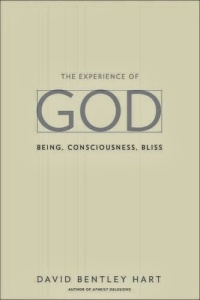Scientists Should Tell Lawrence Krauss to Shut Up Already – Edward Feser
Posted: October 12, 2015 Filed under: Uncategorized | Tags: Aquinas, Atheism, Atheist Delusions, existence of God 2 Comments There is an excellent article by Edward Feser on the false dichotomie of Science and God published by The Witherspoon Institute here
There is an excellent article by Edward Feser on the false dichotomie of Science and God published by The Witherspoon Institute here
The point for present purposes is just this: From the point of view of the main arguments for God’s existence, it is a mistake to think that the place to look for evidence of God is within the domain investigated by science. Rather, the place to look is somewhere more fundamental—at what any possible science must itself presuppose.
The Rules of the Game
Think of it this way: you can’t find out why checkers boards exist by looking at the rules of checkers themselves, which concern only what goes on within the game. The rules tell you how each piece moves, how the game is won, and so forth. But why are the pieces governed by these rules, specifically, rather than others? Why do any checkers boards exist at all in the first place? No scrutiny of the rules can answer those questions. It is impossible to answer them, or indeed even to understand the questions, unless you take a vantage point from outside the game and its rules.
Similarly, what science uncovers are, in effect, the “rules” that govern the “game” that is the natural world. Its domain of study is what is internal to the natural order of things. It presupposes that there is such an order, just as the rules of checkers presuppose that there are such things as checkers boards and game pieces. For that very reason, though, science has nothing to say about why there is any natural order or laws in the first place, any more than the rules of checkers tell you why there are any checkers boards or checkers rules in the first place.
Thus, science cannot answer the question why there is any world at all, or any laws at all. To answer those questions, or even to understand them properly, you must take an intellectual vantage point from outside the world and its laws, and thus outside of science. You need to look to philosophical argument, which goes deeper than anything mere physics can uncover.
Krauss’s argument is as inept as that of someone who thinks that checkers game boards have no cause, because we can find no reference to such a cause in the rules of checkers. Such a person is looking in the wrong place, just as Krauss is looking in the wrong place when he confines himself to science to find some reason to affirm a divine uncaused cause.
The Experience of God. Being, Consciousness, Bliss. – a review by Nathan Duffy
Posted: April 24, 2015 Filed under: Want to read | Tags: Atheism, Christian Apologetics Leave a commentDavid Bentley Hart is a favourite theologian of mine. I adored his easy to read Atheist Delusions. The Christian Revolution and Its Fashionable Enemies. His newer book The Experience of God: Being, Consciousness, Bliss looks like a much harder book with heavy philosophical and metaphysical topics covered but a must read for the student interested in serious theistic metaphysics and current debates surrounding the philosophy of materialism. For a lazy sneak peek, Nathan Duffy works his magic in a review on his blog Dogmatic Enigmatics.
He writes:
Astonishingly, given the somewhat deceptive (or perhaps inept) marketing of the book, this was David Bentley Hart’s best book to date, which is saying something monumental. What neither the title, nor the jacket cover, nor even the blurb reviews reveal is that the book is primarily a relentless, blistering attack on the superstitions and credulous fideisms of materialism. Over and against this decrepit and impoverished philosophy of reality, and in response to its inept attempts to demystify the world, Hart turns to the common deposit of theistic metaphysical tradition for the arresting and compelling antidote.
The Problem of Evidence in Atheism
Posted: February 28, 2013 Filed under: God and Science, New Atheism | Tags: Atheism, Evidence 27 CommentsA snippet from a recent essay of mine on Atheism:
“In the God Delusion, Dawkins seems to think the theory of evolution is an answer for everything and quite easily remove God from the equation of life. Life is explained by evolution. Not so. Evolution explains the changes in life. It does not look at origins of life nor physics nor God. His explanations of how it might explain religion and consciousness and many other things are pure speculation, not fact.
Alex Jensen, professor of systematic theology at Murdoch University, points out the basis of such an argument is a logical fallacy. When we do science, we do not assume God. We assume God does not make my car run, the engine does. So the fact that the car runs without God proves God does not exist. Not so.
To make the conclusion that God does not exist, when God has not been factored into the experiment in the first place, makes an inconsistent leap. “Methodological atheism jumps to ontological atheism with no explanation.”
Nathan Duffy brings up the issue more clearly in his blogpost: Evidentialist Atheism
If you traffic in atheistic circles, online or elsewhere, you’ll notice that the primary objection lodged against belief in God is the evidential objection i.e. “I believe things based on [usually ‘scientific’] evidence (and others ought to as well); in the absence of evidence for some proposition, I withhold (and others ought to withhold) belief in it; there is no evidence for God’s existence that I’ve ever seen; hence I can’t justify believing in God (and neither can anyone else).” Not only is this the primary objection, it’s virtually becoming the sole objection. There are many weaknesses to this argument, but I just want to examine one of them in this post.
Namely this: for someone who adopts this stance, what would count as evidence of the supernatural or of God? And if it turns out there is not any sort of event, fact, datum, or combination of facts that would count as evidence of the supernatural or of God, then how is this stance distinguishable from a priori atheism, rather than a result of a survey of the pertinent evidence? And if it is indistinguishable from a priori atheism, why countenance the objection seriously at all? Read the rest of this entry »
The Last Super-stition. A Refutation of New Atheism.
Posted: October 6, 2012 Filed under: God and Science, New Atheism, Want to read | Tags: Atheism, New Atheism, religion, science, theology 2 CommentsThe central contention of the “New Atheism” of Richard Dawkins, Daniel Dennett, Sam Harris, and Christopher Hitchens is that there has for several centuries been a war between science and religion, that religion has been steadily losing that war, and that at this point in human history a completely secular scientific account of the world has been worked out in such thorough and convincing detail that there is no longer any reason why a rational and educated person should find the claims of any religion the least bit worthy of atten tion.
tion.
But as Edward Feser argues in The Last Superstition, in fact there is not, and never has been, any war between science and religion at all. There has instead been a conflict between two entirely philosophical conceptions of the natural order: on the one hand, the classical “teleological” vision of Plato, Aristotle, Augustine, and Aquinas, on which purpose or goal-directedness is as inherent a feature of the physical world as mass or electric charge; and the modern “mechanical” vision of Descartes, Hobbes, Locke, and Hume, according to which the physical world is comprised of nothing more than purposeless, meaningless particles in motion. The modern “mechanical” picture has never been established by science, and cannot be, for it is not a scientific theory in the first place but merely a philosophical interpretation of science.
Not only is this modern philosophical picture rationally unfounded, it is demonstrably false. For the “mechanical” conception of the natural world, when worked out consistently, absurdly entails that rationality, and indeed the human mind itself, are illusory. The so-called “scientific worldview” championed by the New Atheists thus inevitably undermines its own rational foundations; and into the bargain it undermines the foundations of any possible morality as well.
Humanism and atheism as civil religions
Posted: January 27, 2012 Filed under: New Atheism | Tags: Atheism, religion Leave a comment
Rather than retaining its vocation as a prophetic witness, disabusing humans of our illusions and idolatries, atheism now seems content to become Pepsi to the Coke of religion.
Luke Bretherton
ABC Religion and Ethics 4 Oct 2011
But here we need to distinguish atheism and humanism. Arguably, humanism has always sought to provide an alternative to traditional religions through creating an anthropocentric civil religion.
There is a long tradition of wrestling with the problem of how to provide a moral basis for political and economic relations without Christianity that spans Machiavelli, Hobbes, Spinoza, Rousseau, John Toland and Comte.
However, unlike many contemporary humanists, these thinkers were aware of the pathos at the heart of this task: it involved replacing one religion with another. The task was necessarily one of setting up a compelling religious alternative to Christianity or de-christianising and remodelling Christianity so that it could serve as the basis of a civil religion.
Atheism had no such pretensions. Its aim was to rid us of the need for religion. Yet in its move to remodel itself as a civil religion it has become what it claims to reject. The disdain of a Marx or Freud for religion has given way to the shrill competitiveness of the “New Athiests.”
The sense in which religion and by implication atheism was simply a passing stage on the way to a new rationalistic outlook freed from religious baggage seems to have dissipated. Instead, a new confessional atheism has emerged, one ready to hawk its wares in the religious marketplace and compete for the souls of children.
Rather than a critique of religion from which the religious can learn, we find a “wannabe civil religion” that depends for its appeal on the continuance of the very thing it claims to replace. It has become an alternative rather than a critique.
Rather than a prophetic witness, disabusing humans of our illusions and idolatries, atheism has become Pepsi to the Coke of religion. To paraphrase the New Testament: what does it profit atheism to gain the whole world and lose its own soul?
Evolutionary success. Thus says the Lord?
Posted: October 23, 2011 Filed under: God and Science, Random Images | Tags: Atheism 1 Comment
What is wrong with this?





